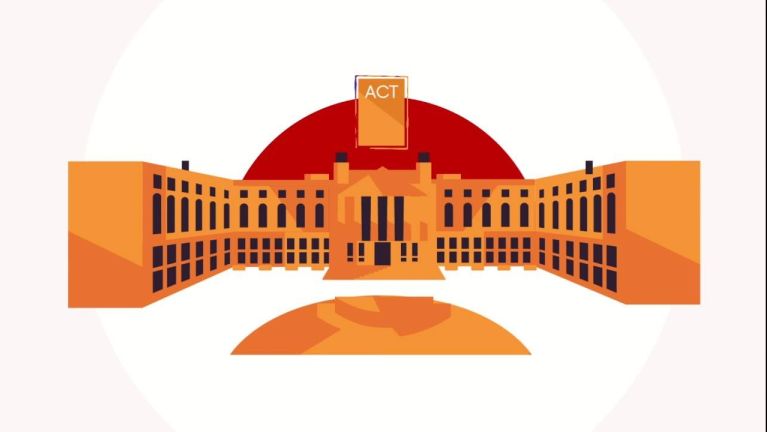How German politics decides
Corona measures, organ donations and euthanasia: we explain how German politicians make decisions on ethical questions.

Is euthanasia permissible or not? Should everyone be registered as an organ donor? Which corona measures are meaningful? Members of the German Bundestag regularly have to make difficult ethical decisions. But how do they go about it? Who advises them and are they really free to follow their own consciences? Article 38 of the Basic Law answers the last question: “They [the members] shall be representatives of the whole people, not bound by orders or instructions and responsible only to their conscience.”
An obligatory party whip that compels Bundestag members to vote in accordance with an earlier resolution of their party group is not allowed in Germany. In reality, of course, there is often a certain amount of pressure on members of parliament to follow their party leadership – this is often referred to as party discipline. However, a member of the Bundestag who does not obey party discipline cannot be penalised or made accountable.
What is a matter of conscience?
There are decisions, however, in which the parliamentary party leadership explicitly demands a free vote of all members. So-called matters of conscience of this kind usually emerge when a vote was preceded by a long public debate. This was the case, for example, on 30 June 2017 when the Bundestag voted on whether same-sex couples should be accorded full statutory adoption rights. The prohibition of commercial euthanasia was also declared a matter of conscience.
Who advises members of parliament?
In addition to advice from their (research) staff, Bundestag members mainly receive decision-making guidance from the German Ethics Council. It focuses on the central questions of life. Its recommendations provide guidance for society and politics. Its members are appointed by the President of the German Bundestag. The Ethics Council, which includes representatives from the fields of law, medicine and philosophy, among others, has also been an important source of advice during the corona crisis.
Dieses YouTube-Video kann in einem neuen Tab abgespielt werden
YouTube öffnenThird party content
We use YouTube to embed content that may collect data about your activity. Please review the details and accept the service to see this content.
Open consent formYou would like to receive regular information about Germany? Subscribe here:



